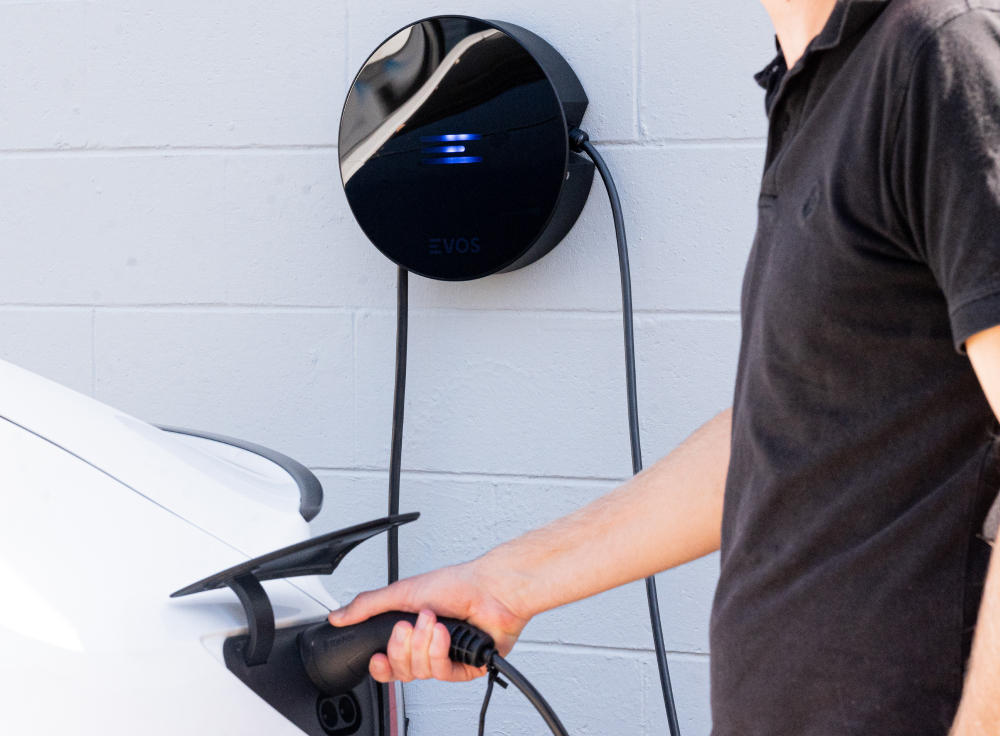How Long Does It Take To Charge An Electric Vehicle?

Finding out how long it takes to charge an EV can be a difficult task due to a variety of factors involved with electric vehicle chargers and the cars capacity. Below we cover the various factors and give you some average times to figure out how long it takes to charge your car.
Charging Duration Spectrum
Electric vehicle charging duration varies significantly, ranging from a rapid 8 minutes using an ultrarapid 350kW charger to an extended period exceeding 48 hours with a standard portable charger. This variability is primarily influenced by two factors: the electric vehicle’s battery capacity and the charging point’s power output.
Standard EV Charging
For a typical electric vehicle equipped with a 70kWh battery, a complete charge from a depleted state to full capacity using a 7kW charging point requires approximately 10 hours.
Charging Behavior Comparison with Petrol Vehicles
Contrasting with petrol vehicles, electric car owners tend to incrementally charge their vehicles, akin to how mobile phones are charged, rather than waiting for complete battery depletion.
Evolution in EV Battery and Charging Infrastructure
Recent advancements have seen electric vehicles being equipped with larger batteries, compatible with more potent ultrarapid EV charging stations.
Charging Location Statistics
Approximately 95% of electric car charging occurs at home or work, with the remaining 5% utilizing DC charging stations.
Detailed Charging Time Analysis
The study presents a comprehensive analysis of 0-100% charging times across various EV models and charging speeds.
Example EV Charging Times
- Nissan LEAF (2018 Model, 40kWh Battery): Ranges from 11 hours on a 3.7kW slow charger, 3 hours on a 22kW level 2 charger to 1 hour on a 43-50kW rapid charger.
- Tesla Model S (2019 Model, 75kWh Battery): Charging times vary from 21 hours on a 3.7kW slow charger, 4 hours on a level 2 charger to 1 hour for a 300-mile range on a 150kW rapid charger.
- Mitsubishi Outlander (2018 Model, 13.8kWh Battery): 4 hours on a 3.7kW slow charger, 1.5 hours on a 22kW level 2 charger to 40 minutes on a 43-50kW rapid charger.
Charging Speeds and Range Analysis
DC chargers offer the fastest charging speeds, ranging from 50-350 kW, potentially providing up to 600km of range in under 8 minutes. Home charging stations typically range from 7kW to 22kW. The EV’s own charging capability may limit the effectiveness of these chargers.
Destination Charging Concept
Destination charging, where EVs are charged at places like supermarkets or workplaces, typically utilizes 7kW to 22kW chargers. This strategy complements home charging and facilitates the transition from petrol to electric vehicles.
Charging Range Efficiency
The efficiency and range added per hour of charging vary significantly based on the charger’s power. For instance, a 3.7kW slow charger adds up to 20 km per hour, whereas a 150kW rapid charger can add up to 900 km per hour.
Efficiency Factors
Efficiency in electric vehicles is influenced by battery size, vehicle weight, and environmental conditions. Lighter EVs tend to be more efficient than heavier models. Plug-in hybrids often exhibit lower efficiency due to the dual-engine requirement. Temperature also plays a role, with higher efficiency generally observed in warmer climates.
Key Factors Influencing Charging Speed
- Battery Capacity: Larger batteries require longer charging times.
- Battery State: Charging from a lower state of charge takes longer.
- Vehicle’s Maximum Charging Rate: The EV’s charging capability can limit charging speed.
- Charger’s Maximum Rate: The maximum output of the charging station also dictates charging speed.
- Environmental Conditions: Lower temperatures can prolong charging times and reduce efficiency.
Energy Utilization Tips
- In colder climates, regular top-up charges are recommended to maintain efficiency.
- Utilizing renewable energy sources, like solar power, is advised to maximize the environmental benefits of electric vehicles.